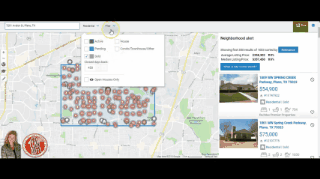 Closing is the final step in the home-buying process and once you’ve signed your name on all of the required documents, your dream property will finally be yours. If you’ve been searching for a home for months, you may be eager to wrap up the closing as quickly as possible. But the date that you choose to close on your mortgage can affect your cash flow in more ways than one.
Closing is the final step in the home-buying process and once you’ve signed your name on all of the required documents, your dream property will finally be yours. If you’ve been searching for a home for months, you may be eager to wrap up the closing as quickly as possible. But the date that you choose to close on your mortgage can affect your cash flow in more ways than one.
How the Closing Date Affects Your First Payment
Generally, a homeowner’s first mortgage payment is due the first day of the month following the 30-day period after the close. If you’re buying a home and you close on August 30, for example, your first payment would be due on October 1. That means you basically get a month to live in the home mortgage-free.
For someone who’s leaving behind a rental unit, scheduling the closing at the end of the month might make sense if you have to give a 30-day notice before moving out. That way, you don’t have to pay rent for a partial month while you move into your new home. On the other hand, scheduling the closing for an earlier date can give you more time before your mortgage payment comes due.
Let’s say you close on a mortgage on the fifth day of the month instead of the 30th. Your first payment wouldn’t be due until one full month has gone by. So if you closed on August 5, you wouldn’t be responsible for paying until the first day of October. If you’re shelling out a lot of money to pay for closing costs, having some extra wiggle room before it’s time to start making mortgage payments can be helpful.
Try out our closing costs calculator.
Closing Dates and Interest Payments

Besides determining when your first payment is due, your closing date also affects the amount of interest that gets tacked onto the loan. When you close on a mortgage, you’re required to pay for any interest that accrues between the closing date and the end of the month. If you’re closing on the last day of the month, you’re not going to get hit with a big interest bill. But if you close near the beginning of the month, you’ll have to pay more in interest.
Compromise by Closing in the Middle of the Month
When it comes to choosing a closing date, it’s really a choice between saving on interest and having more time before your mortgage payment comes due. If you don’t know what to do, you can always make your closing date fall in the middle of the month. That way, you can avoid spending a ton of money on interest and benefit from having a month and a half left before the mortgage payments kick in.
Final Word
Once you’ve selected your optimal closing date, it’s a good idea to make sure you’re prepared to head to the closing table. Your lender is required to issue a closing disclosure at least three business days before the closing date.
Checkout other Financing Basics
Haven't found your dream home yet? Click below for MLS available homes!

Read Next....



